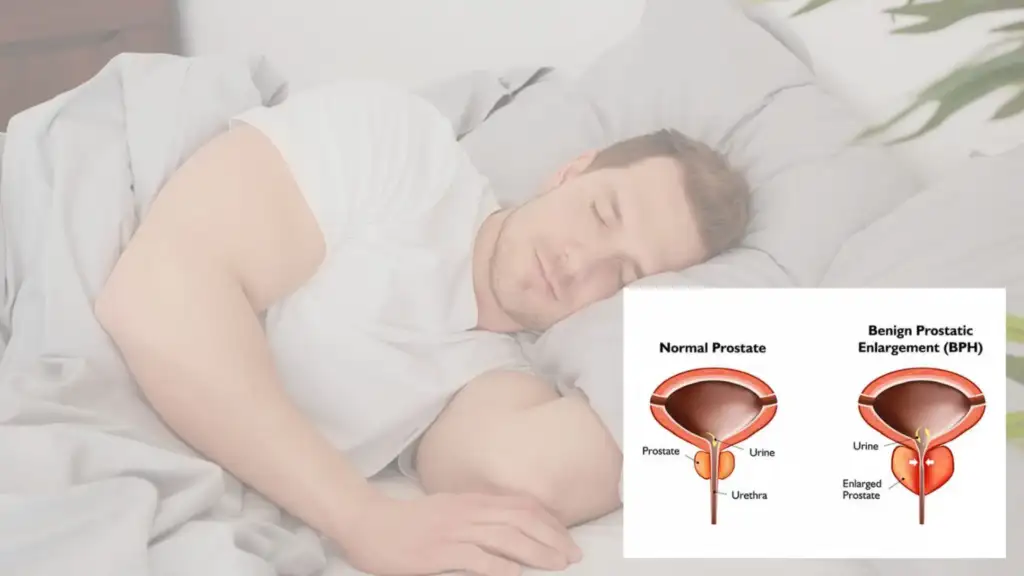Imagine that you are an adult male who is forced to hit the restroom frequently at night due to a medical condition. Imagine that this happens every night and you are constantly losing your sleep. How would you feel? It’s one of the worst nightmares, isn’t it? Well, there are a lot of men suffering from this all around the world. An enlarged prostate or benign prostatic hyperplasia (BPH) is the villain who’s doing the job here.
Medications And Treatments For Enlarged Prostate-Related Sleep Issues
An enlarged prostate, aka benign prostatic hyperplasia (BPH), is a common condition in older men where the prostate gland grows in size, potentially causing urinary symptoms and difficulties like having the urge to pee constantly. BPH affects men over the age of 50 the most. According to research, up to 14 million men in 2010 reported symptoms suggestive of BPH. Likewise, BPH is found to impact 50% of men between the ages of 51 and 60, and up to 90% of men over the age of 80.
Even though this illness has no major consequences, it can cause sleep fragmentation and excessive daytime sleepiness, which is highly troubling.
Excessive daytime sleepiness refers to a persistent feeling of fatigue and drowsiness during the day, even after getting enough sleep at night. This can be a result of sleep fragmentation, as well as other factors such as sleep disorders, sleep deprivation, or certain medical conditions. Whatever it may be, it’s not desirable and such people need help to sleep better at night.

So the question is, how can a man sleep better if he suffers from benign prostatic hyperplasia (BPH)? Here are some solutions:
- Go to the bathroom before bedtime: Empty your bladder before going to bed to reduce the need for nighttime trips to the bathroom. By emptying your bladder before bed, you can reduce the urgency and frequency of nighttime urination, which can help you sleep more continuously.
- Avoid liquids before bedtime: Limit fluid intake in the evening, especially caffeine and alcohol, which can increase urine production. However, it’s important to drink enough fluids throughout the day to stay hydrated and prevent other health problems.
- Elevate your head while sleeping: Yup, that may work. Elevating the head of the bed by 4 to 6 inches (15.24 cm) can reduce symptoms of BPH and improve sleep. This can be achieved by using extra pillows or a foam wedge, or by adjusting the head of the bed with blocks or risers. Elevating the head of the bed can help reduce pressure on the bladder and prostate, allowing for a more restful and continuous sleep. However, it’s significant to find a comfortable and supportive sleeping position that works for you and to talk to a healthcare provider if you have any concerns.
- Practice good sleep hygiene: Maintain a consistent sleep schedule, establish a relaxing bedtime routine, and create a comfortable sleep environment.
- Medications: Consult with a healthcare provider about medications that can help relieve BPH symptoms and improve sleep, such as alpha-blockers or 5-alpha reductase inhibitors.

To conclude, it is important to note that these tips are not a substitute for medical advice and treatment. So, if you are experiencing persistent sleep problems or other symptoms related to an enlarged prostate, consult a healthcare provider for proper evaluation and treatment.

